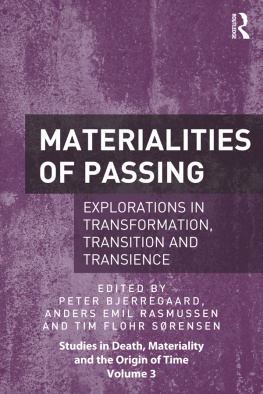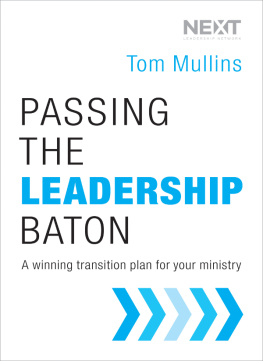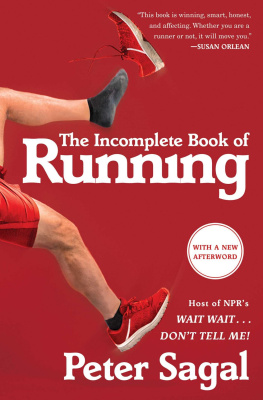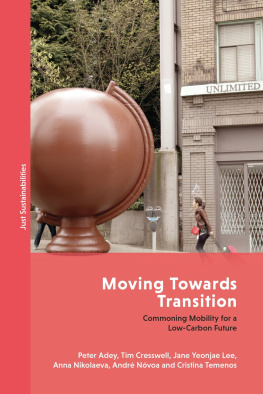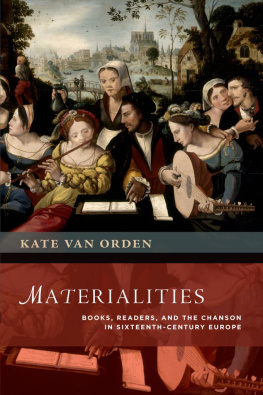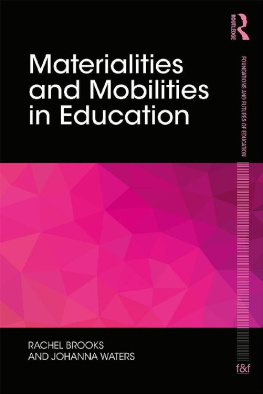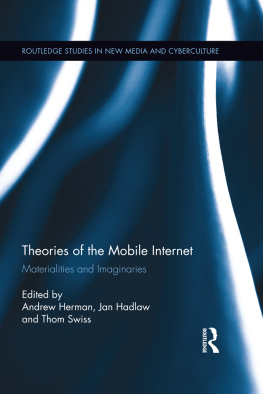Passing is a common euphemism for the death of a person, as he or she is said to pass away or pass on. This open-ended saying has at its heart a notion of transformation from one state to another, which in turn grants the possibility of grasping or approximating the passage of time and the materiality of death and decay.
This book begins with the idea that since all material things whether animals, human-beings, objects or buildings undergo some form of passing, then the specific transformation in these passages and the materiality actively given to it can offer us a grasp of otherwise precarious temporalities. It examines how human beings strive to relate to the temporal dimension of death and decay, by giving new shape and direction to being and by examining its natural transformations. Focusing on the materiality of passing, and thereby the relationship between embodiment, temporality and death, Materialities of Passing offers rich case studies from Europe, Papua New Guinea, South Africa and the Russian Far East for exploring the material, spatial and directional aspects of the very interface between life and death. As such, it will appeal to scholars of anthropology, death studies, archaeology, philosophy and cultural studies.
Studies in Death, Materiality
and the Origin of Time
Series Editors: Rane Willerslev and Dorthe Refslund Christensen, Aarhus University, Denmark
Eventually we all die and we experience death head-on, when someone close to us dies. This series, Studies in Death, Materiality and the Origin of Time, identifies this fact as constitutive of the origin of human conceptions of time. Time permeates everything, but except for time itself all things are perishable yet, it is only through the perishable world of things and bodies that we sense time. Bringing together scholarly work across a range of disciplines, the series explores the fact that human experiences and conceptions of time inherently hinge on the material world, and that time as a socially experienced phenomenon cannot be understood as separate from material form or expression. As such, it departs from a persistent current within Western thinking. Philosophy, biology and physics, among other disciplines, have studied time as an essential, ethereal and abstract concept. In the same way, death has often been conceived of in abstract and sometimes transcendental terms as occupying one extreme margin of human life. As an alternative, this series examines the ways in which bodily death and material decay are central points of reference in social life, which offer key insights into human perceptions of time.
Also in this series
Suicide and Agency
Anthropological Perspectives on Self-Destruction, Personhood, and Power
Edited by Ludek Broz and Daniel Mnster
ISBN 978-1-4724-5791-2
Mediating and Remediating Death
Edited by Dorthe Refslund Christensen and Kjetil Sandvik
ISBN 978-1-4724-1303-1
Taming Time, Timing Death
Social Technologies and Ritual
Edited by Dorthe Refslund Christensen and Rane Willerslev
ISBN 978-1-4094-5068-9
Materialities of Passing
Explorations in Transformation,
Transition and Transience
Edited by
PETER BJERREGAARD
University of Oslo, Norway
ANDERS EMIL RASMUSSEN
Moesgaard Museum, Denmark
TIM FLOHR SRENSEN
University of Copenhagen, Denmark

First published 2016
by Routledge
2 Park Square, Milton Park, Abingdon, Oxon OX14 4RN
and by Routledge
711 Third Avenue, New York, NY 10017
Routledge is an imprint of the Taylor & Francis Group, an informa business
2016 selection and editorial matter, Peter Bjerregaard, Anders Emil Rasmussen and Tim Flohr Srensen; individual chapters, the contributors
The right of Peter Bjerregaard, Anders Emil Rasmussen and Tim Flohr Srensen to be identified as the author of the editorial material, and of the authors for their individual chapters, has been asserted in accordance with sections 77 and 78 of the Copyright, Designs and Patents Act 1988.
All rights reserved. No part of this book may be reprinted or reproduced or utilised in any form or by any electronic, mechanical, or other means, now known or hereafter invented, including photocopying and recording, or in any information storage or retrieval system, without permission in writing from the publishers.
Trademark notice: Product or corporate names may be trademarks or registered trademarks, and are used only for identification and explanation without intent to infringe.
British Library Cataloguing in Publication Data
A catalogue record for this book is available from the British Library
Library of Congress Cataloging in Publication Data
Materialities of passing : explorations in transformation, transition and transience /[edited] by Peter Bjerregaard, Anders Emil Rasmussen and Tim Flohr Srensen.
pages cm. (Studies in death, materiality and the origin of time)
Includes bibliographical references and index.
ISBN 978-1-4724-4197-3 (hardback) ISBN 978-1-4724-4198-0 (ebook) ISBN 978-1-4724-4199-7 (epub) 1. DeathCross-cultural studies. 2. Material culture. 3. Thanatology. I. Bjerregaard, Peter, editor. II. Rasmussen, Anders Emil, editor. III. Srensen, Tim Flohr, editor.
GN485.5.M38 2016
306.9dc23
2015028321
ISBN: 9781472441973 (hbk)
ISBN: 9781315594309 (ebk)
Typeset in Times New Roman
by Apex CoVantage, LLC
Contents
Peter Bjerregaard, Anders Emil Rasmussen and Tim Flohr Srensen
Jenny Hockey, Andy Clayden, Trish Green and Mark Powell
Martin Demant Frederiksen
Tim Flohr Srensen
Anne Kjrsgaard and Eric Venbrux
Maja Petrovi-teger
Anders Emil Rasmussen
Per Ditlef Fredriksen
Susan Matland
Jeanette Lykkegrd
Jan Bill
Peter Bjerregaard and Rane Willerslev
Dylan Trigg
Jan Bill holds a PhD in archaeology from the University of Copenhagen. He is Professor in Viking Age Studies at Museum of Cultural History, University of Oslo, where he serves as Curator of the Viking Ship Collection. He works in particular with Norwegian ship graves from Oseberg, Gokstad, Tune and Borre, and is currently directing the research project Gokstad Revitalised. Among his other research interests are Maritime Archaeology, Medieval Ships and Seafaring, and Archaeometry.
Peter Bjerregaard is Senior Adviser of Exhibitions at Museum of Cultural History, University of Oslo. He holds a PhD in anthropology and has conducted fieldwork on exhibition processes in contemporary museums of ethnography. His current research focuses on the relation between research and exhibition practice. As part of this work he is project leader for a collaboration between the six Norwegian university museums on Exhibitions as research generating practice.
Andy Clayden is a senior lecturer and landscape architect in the Department of Landscape, Sheffield University. He has published widely on cemeteries and more specifically on natural burial. His research focuses on the temporal and dynamic nature of landscape, which has had a major influence on his design teaching and how people experience and engage with the natural burial and cemetery landscape.

